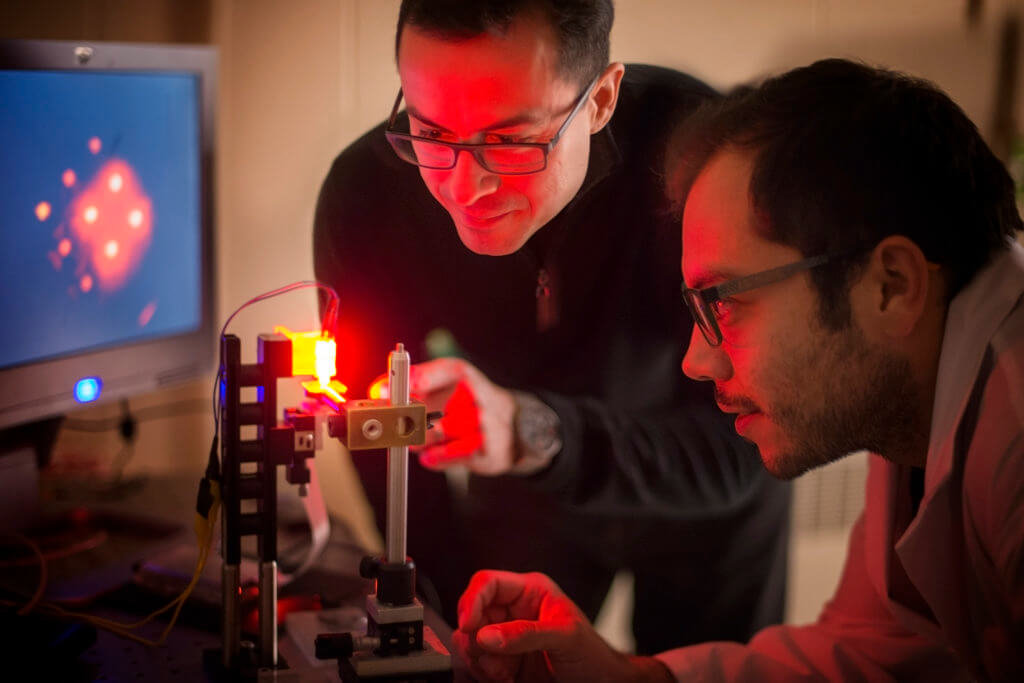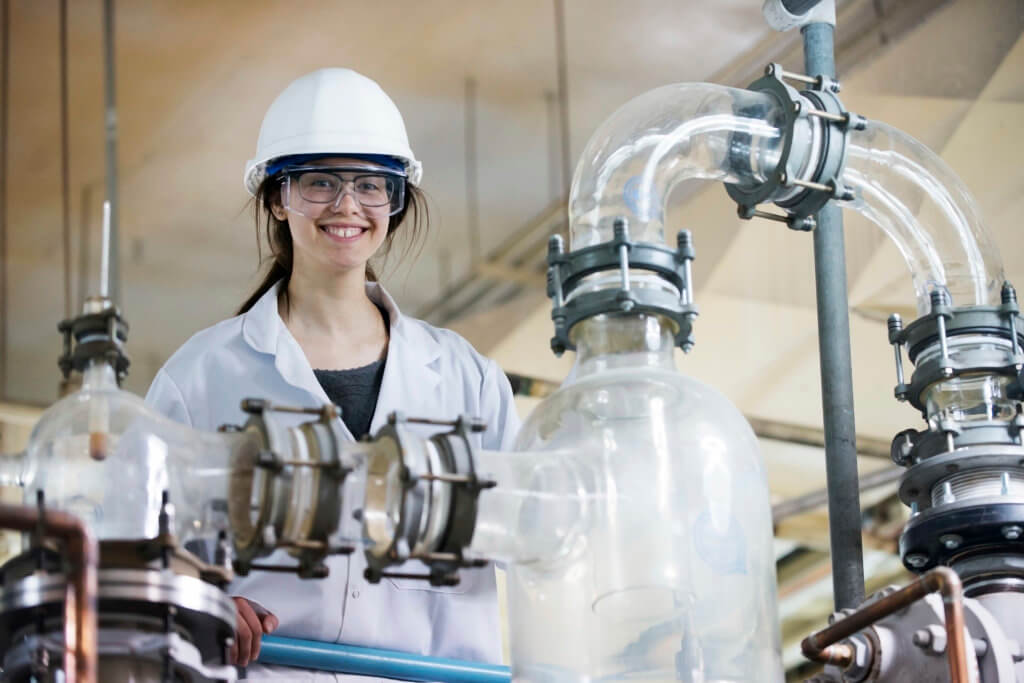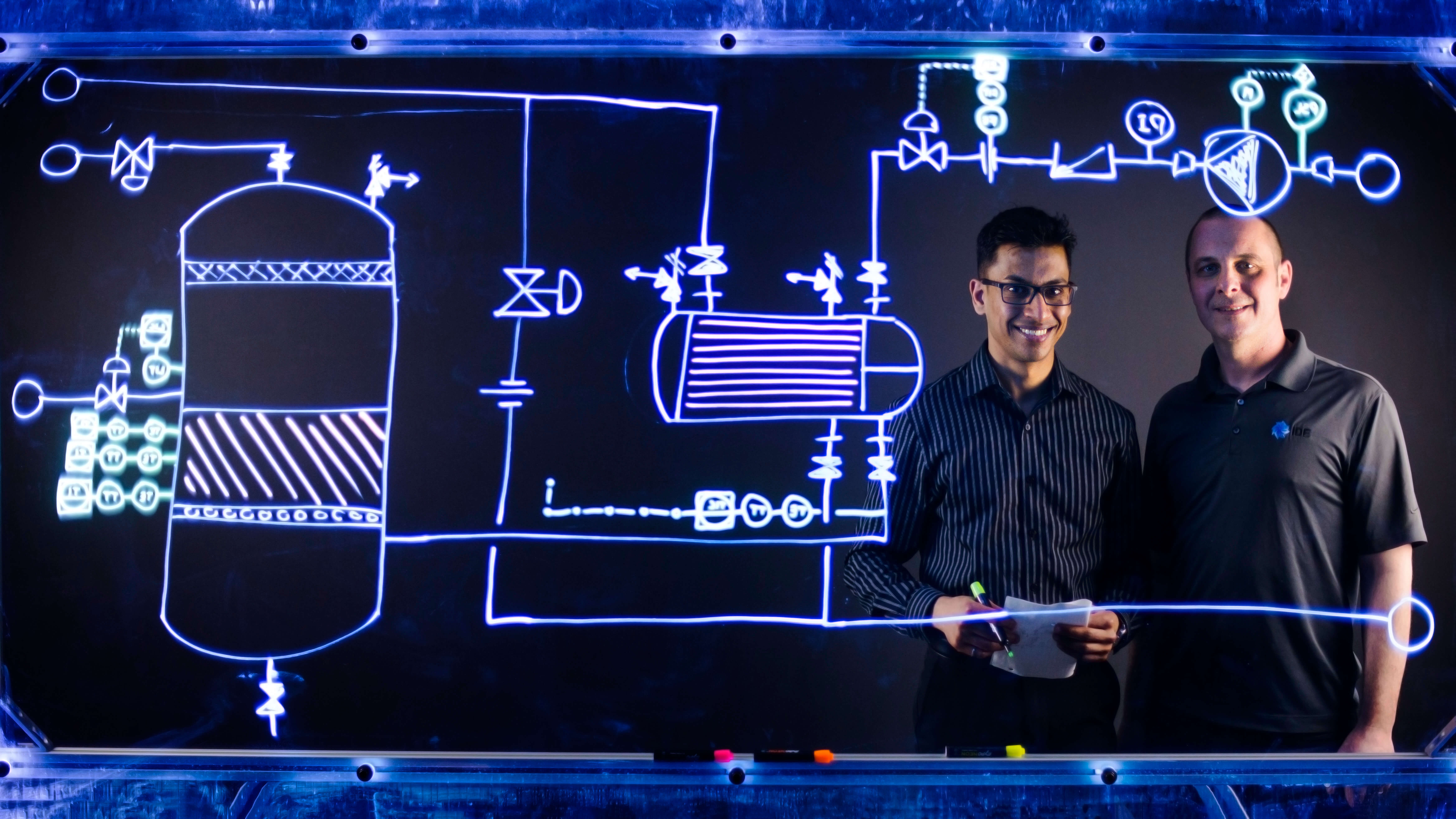When it comes to selecting the best programme at university, experience is the best teacher. Laura McKiel would know this. She found her bachelor’s degree at the Department of Chemical Engineering at Queen’s University versatile, high-quality and challenging — so much so that she completed her entire academic journey here.
The common first year provided the necessary scientific and mathematical background for McKiel to enter the second year Engineering and Applied Science, while simultaneously introducing her to engineering. More importantly, it allowed her to take a variety of engineering courses before deciding what discipline to specialise in.
“When researching different labs and projects I found a new professor who was starting up a lab,” she explains. “The lab’s research was focused on an area that I was really interested in (a mix of immunology and biomedical engineering), so I decided to stay at Queen’s and do an MASc there. I ended up enjoying the MASc so much that I transferred to a PhD!”.
When asked about her favourite moments, McKiel had plenty. She remembers how one of her professors did an “amazing job” of teaching basic science while also giving examples of current applications and some of the stem cell research her lab at Queen’s was doing. She “really enjoyed” the problem-solving exercises in Biomedical Engineering, because those showed how theory can be applied to real-world situations.

Source: Queen’s University, Department of Chemical Engineering
For five years, she participated in academic research projects while completing her PhD. “I started with a project that was trying to make models for tissue damage in vitro, and from there, started to focus on a type of white blood cells called macrophages and the signalling pathways they use when reacting to an implanted material in the body (such as a catheter for insulin infusion),” she shares.
“Working in a new lab gave me a lot of opportunities to learn new techniques and become the lab’s ‘expert’ on them. For example, I took a course on phlebotomy and was the go-to person to perform blood draws on volunteers for our research.”
The best part? Conferences. “A highlight of grad school for me was being able to attend a variety of conferences in Canada and the US, where I presented my work, learned about new research happening in my field, and met a lot of interesting people,” says McKiel.
McKiel’s endorsement reflects the love Queen’s graduates hold for their programmes. Founded over 100 years ago, the award-winning department specialises in both research and teaching. The department is home to one of the oldest programmes of Chemical Engineering and the only Engineering Chemistry programme in North America.
Experienced, supportive faculty members are the backbone of this world-class department. PhD candidate Yazan Bdour describes them as “nothing but exquisite, amazing, and supportive.” If he had questions, all he had to do was either email or show up at the front office — unannounced and without an appointment — and ask for assistance about any issues he could be having.
At the undergraduate level, the department offers two distinct programmes: Chemical Engineering or Engineering Chemistry. Both develop skills in engineering science and design, mathematics, physics, biological sciences, chemistry, and economics. These skills can be used to solve numerous technical problems and to manufacture products safely, economically and efficiently.

Source: Queen’s University, Department of Chemical Engineering
At the postgraduate level, the department offers the Master’s Programme (MASc/MEng) and Doctoral Programme (PhD). A group of award-winning researchers educate students in advanced concepts and techniques, conduct research inquiry at the forefront of discipline knowledge, and foster independent and critical thought. Through a dynamic fusion of coursework, thesis and project work, students gain the critical and scholarly skills necessary to conduct research.
“My studies at Queen’s taught me how to learn, how to think critically, how to work with other people, and how to manage my time,” says Engineering Chemistry graduate Isaac Vandermeulen.
Informed by the latest findings, motivated by the faculty’s dedication — a Queen’s degree, at all levels, is an enriching experience. Just ask Bernadette Ilagan. Inspired by the engineers and nurses in her family, she chose a career in chemical engineering. “It is a profession where I could improve people’s lives by creating products to treat patients,” she shares.
Ilagan found the impact she sought at Queen’s. One of the research focuses on the creation of effective biodegradable and biocompatible polymers for biomedical applications — this appealed to Ilagan. “My favourite class was biomaterials as this was directly related to my research,” she shares.
Studying and conducting research here are opportunities to innovate with impact. As the master’s of applied science programmes at Queen’s are research-based, students spend most of their time in the lab doing hands-on projects. “Some of my favourite memories from inside the lab were being able to create scaffolds from my materials and with my lab mates,” Ilagan adds.
Ilagan currently works as a senior engineer and project manager at Ripple Therapeutics, where she’s developing an injector to support the Phase III clinical trial of Ripple Therapeutics’s lead product IBE-814 IVT.
When she wasn’t in one of the department’s extensive research laboratories, or large- and small-group teaching classrooms at Dupuis Hall, Ilagan was immersed in the best Kingston had to offer. Located at the northeastern end of Lake Ontario midway between Toronto and Montreal, this historic city is a flourishing regional centre of culture, business, and industry.
“The Memorial Centre Farmers Market on Sundays is a great, local market with really good food and live music,” she shares.
For fellow graduate McKiel, her best memories were of Kingston’s summers. Graduate students would play paintball or go to the bars together. “The city was beautiful and the city square would hold many events (farmer’s market, movie nights),” she enthuses. “I liked that the main strip of restaurants and stores were close by to the university.”
Graduate Dimitra Louka found Kingston’s waterfront, parks and historic buildings perfect for long walks or bike rides. “Kingston is a beautiful small city with plenty to see and do,” she explains. “Small local coffee shops, nice restaurants, and craft beer pubs are all over the city centre while you often come across galleries and artisan workshops that offer classes from pottery and oil painting to glass blowing,” she explains.
Follow Queen’s Engineering on Twitter, Facebook, Instagram and LinkedIn










